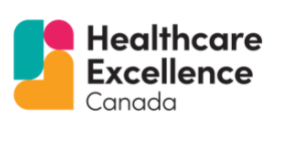
Exploring Anti-Oppression Practices and Unconscious Bias in Our Work
This session (part 1 of 2) introduces participants to the Coin Model of Privilege, Critical Allyship and other approaches to anti-oppressive practice. These frameworks help deepen our understanding of the impact of unearned advantage and disadvantage in different contexts. Participants will reflect on their relationship with different systems of oppression, and ways to foster equity and inclusion in their patient engagement work and the healthcare system more broadly.
As part of creating a meaningful learning experience, participants will be invited to complete pre-work associated with each session, such as reviewing short videos or doing personal reflection. This will be emailed to participants in advance of the session.
This session is offered in English with simultaneous interpretation in French. ASL/LSQ will also be available on request.
About the Speakers:
Ed Connors is of Mohawk (from Kahnawake Mohawk Territory) and Irish ancestry. He is a psychologist who has worked with First Nations communities across Canada since 1982 in both urban and rural centres. His work over this time has included Clinical Director for an Infant Mental Health Centre in the city of Regina and Director for the Sacred Circle, a Suicide Prevention Program developed to serve First Nations communities in Northwestern Ontario. Ed’s most recent work has involved development of Indigenous Life Promotion projects, including Feather Carriers Leadership for Life Promotion. While developing this service, Ed worked with Elders and apprenticed in traditional First Nations approaches to healing. Today his practice incorporates traditional knowledge about healing while also employing his training as a psychologist. His current work includes consultation and community training to assist First Nations in the development of Restorative Justice programs.
Stephanie Nixon is a Full Professor in the Department of Physical Therapy and Dalla Lana School of Public Health at the University of Toronto. She completed her PhD in Public Health in 2006 at the University of Toronto, and a post-doc at the University of KwaZulu-Natal in South Africa in 2008. Stephanie is a straight, white, middle class, able-bodied, cisgender, settler woman who tries to understand the pervasive effects of privilege. Stephanie developed the Coin Model of Privilege and Critical Allyship as a way to translate core ideas about anti-oppression and anti-racism to people in positions of unearned advantage. She has conducted workshops on the Coin Model with more than 100 groups including universities, hospitals, community-based organizations, and professional associations across Canada and internationally.
For registration information click here.
Free event.
